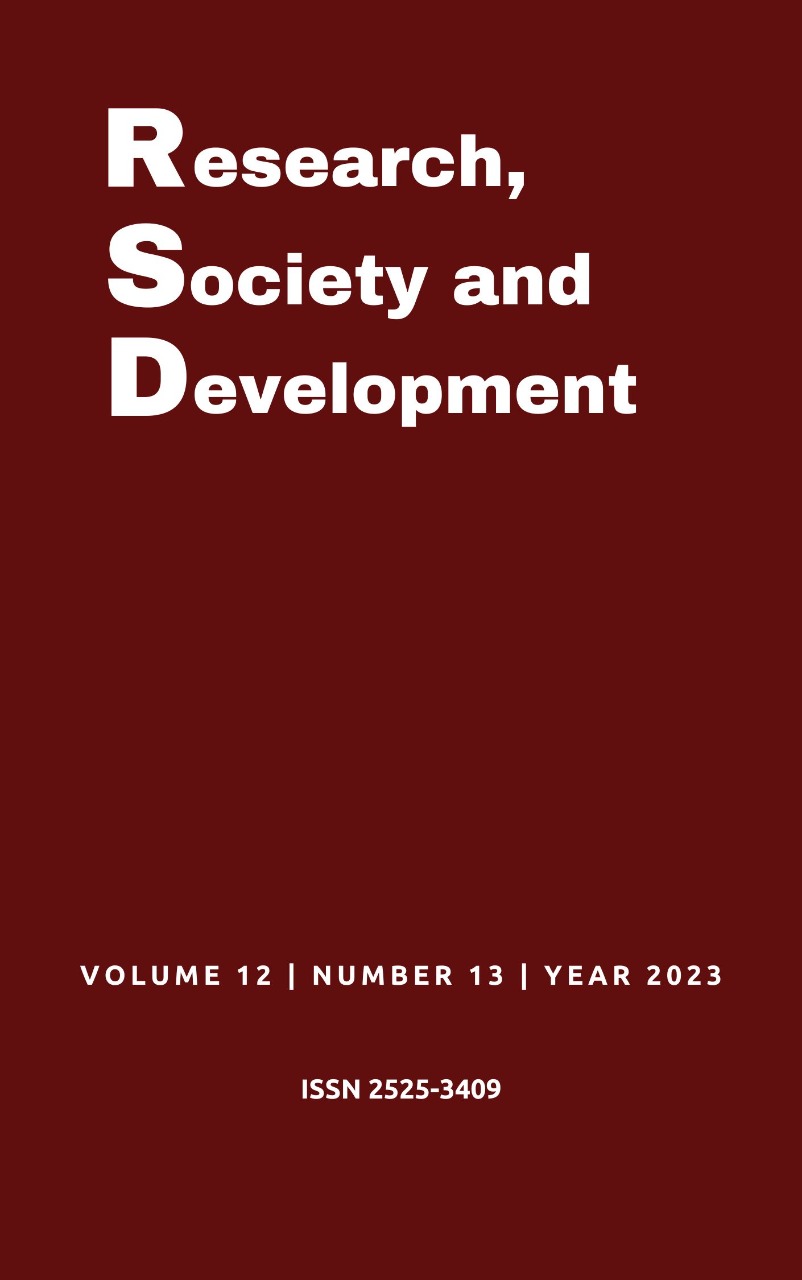Recognition of post-mortem socio-affective paternity and its patrimonial effects on hereditary succession
DOI:
https://doi.org/10.33448/rsd-v12i13.44322Keywords:
Fatherhood; Socio-affective; Recognition; Post mortem.Abstract
This study addresses as its theme a new form of paternity, that is, paternity arising from coexistence and affection, devoid of genetic and consanguineous ties: Socio-Affective Paternity. The objective is to analyze the patrimonial effects of recognizing post-mortem socio-affective paternity and its effects on hereditary succession. Methodologically, this is a bibliographical research of an exploratory-descriptive nature, whose approach methods are deductive and qualitative. Data collection consists of secondary sources, including legislation, doctrine and jurisprudence, preferably extracted from digital media, such as official websites, electronic article repositories and legal document consultation systems. Data analysis and processing occurred using the content analysis technique. The results demonstrate that the recognition of socio-affective paternity is possible even after death, as long as the requirements of affection and state of possession of the child are met, duly proven in a judicial process aimed at the heirs. This recognition makes it possible to include the name of the deceased in the civil registry and, consequently, generate inheritance effects, with the socio-affective child having the right to part of the inheritance that belongs to him. According to jurisprudence, the recognition of socio-affective paternity is a trend, based on constitutional precepts and provisions of the 2002 Civil Code, as there is no specific legislation. In conclusion, when socio-affective paternity is recognized, the rights of both children will be equalized: those of the heart and blood relatives.
References
Bardin, L. (2011) Análise de conteúdo. Edições 70.
Brasil. (2016) Constituição (1988). Constituição da República Federativa do Brasil. Brasília: Senado Federal, Coordenação de Edições Técnicas. 496 p.
Brasil. Lei n. 9.610, de 19 de fevereiro de 1998. https://www.planalto.gov.br/ccivil_03/leis/l9610.htm. Acesso em: 22 out. 2023.
Brasil. Lei n. 10.406, de 10 de janeiro de 2002. https://www.planalto.gov.br/ccivil_03/leis/2002/l10406compilada.htm. Acesso em: 05 nov.2023.
Brasil. Lei n. 8.069, de 13 de julho de 1990. https://www.planalto.gov.br/ccivil_03/leis/l8069.htm. Acesso em: 05 nov. 2023.
Daou, Heloisa Sami. (2016) Paternidade socioafetiva: o valor jurídico do afeto. Revista de Direito de Família e Sucessão, 2(1), 221-240.
Fonseca, Cláudia. (2019) DNA and the displacement of certainties in brazilian family law. Sexualidad, Salud y Sociedad - Revista latinoamericana, (32), 4-19. https://www.scielo.br/j/sess/a/d3zBBC3p4gnvM4rrMmkDQtN/?format=pdf&lang=en.
Gil, A. C. (2019) Métodos e técnicas de pesquisa social. (7a ed.), Atlas.
Gil, A. C. (2022) Como elaborar projetos de pesquisa. (7a ed.), Atlas.
Instituto Brasileiro de Direito de Família (IBDFam). STJ reconhece filiação socioafetiva post mortem entre tio e sobrinha. https://ibdfam.org.br/noticias/10816/STJ+reconhece+filia%C3%A7%C3%A3o+socioafetiva+post+mortem+entre+tio+e+sobrinha+. Acesso em: 20 nov.2023.
Google. Google Acadêmico. https://scholar.google.com.br/?hl=pt. Acesso em: ago.2023 a nov.2023.
GOV.BR. Ministério Da Educação/CAPES. Portal de periódicos capes. https://www-periodicos-capes-gov-br.ezl.periodicos.capes.gov.br/index.php. Acesso: ago.2023 a nov.2023.
Marconi, M. de A., & Lakatos, E. M. (2021) Metodologia científica. (9a ed.), Atlas.
Nunes, D. H., Nunes, L. de S., & Lehfeld, P. F. M. da S. (2019) Os desdobramentos do reconhecimento extrajudicial da “paternidade” socioafetiva. Revista Conversas Civilísticas, 8(2), 1-30.
Pereira, A. (2021) Reconhecimento da filiação socioafetiva post mortem: análise de julgados do stj acerca do tema. Revista Conversas Civilísticas, 1(1).
Tribunal de Justiça do Distrito Federal e Territórios. Pesquisa de documentos jurídicos. In: SISTJWEB. Acórdão n. 895903, 20110210037040APC, Relator: Romulo De Araujo Mendes, Revisor: Teófilo Caetano, 1ª Turma Cível, Data de Julgamento: 16/09/2015, publicado no DJE: 06/10/2015, p.186.
Tribunal de Justiça do Distrito Federal e Territórios. Paternidade socioafetiva: reconhecimento post mortem. https://www.tjdft.jus.br/consultas/jurisprudencia/informativos/2015/informativo-de-jurisprudencia-n-316/paternidade-socioafetiva-2013-reconhecimento-201cpost-mortem201d. Acesos em: 05 nov. 2023.
Souza, M. T. de, Silva, M. D. da, & Carvalho, R. de C. (2010) Revisão integrativa: o que é e como fazer. Einstein, 8(1), 102-106.
Sousa, M. T. C., & Waquim, B. B. (2015) Do direito de família ao direito das famílias: A repersonalização das relações familiares no Brasil. Revista de Informação Legislativa, 52(205).
Downloads
Published
How to Cite
Issue
Section
License
Copyright (c) 2023 Ludmila de Souza Rodrigues e Silva; Roberta de Brito Mota; Ana Carolinna Barros e Silva; Jane Karla de Oliveira Santos; Daniel Carvalho Sampaio; Vanessa Nunes Barros Mendes Sampaio

This work is licensed under a Creative Commons Attribution 4.0 International License.
Authors who publish with this journal agree to the following terms:
1) Authors retain copyright and grant the journal right of first publication with the work simultaneously licensed under a Creative Commons Attribution License that allows others to share the work with an acknowledgement of the work's authorship and initial publication in this journal.
2) Authors are able to enter into separate, additional contractual arrangements for the non-exclusive distribution of the journal's published version of the work (e.g., post it to an institutional repository or publish it in a book), with an acknowledgement of its initial publication in this journal.
3) Authors are permitted and encouraged to post their work online (e.g., in institutional repositories or on their website) prior to and during the submission process, as it can lead to productive exchanges, as well as earlier and greater citation of published work.

